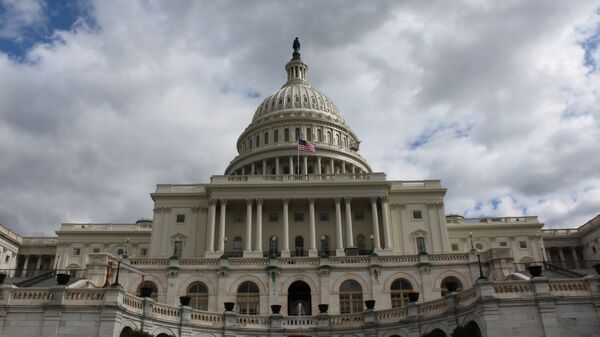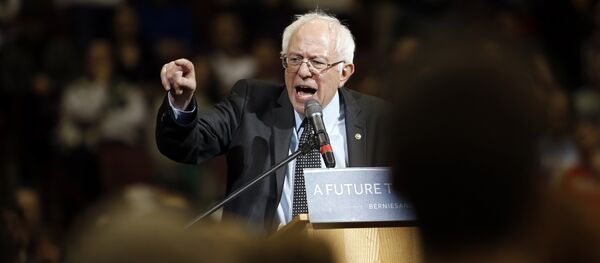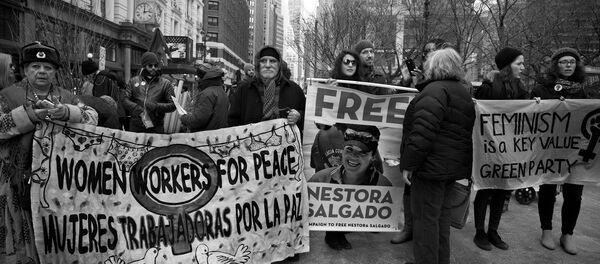Asked whether support for Sanders, who promotes affordable healthcare and free education, is a sign of the birth of a new socialist movement among American youth, Akin agreed. "It is," he told Loud & Clear, adding, "For the last several years polls have shown that socialism is actually viewed in a favorable light by most young people. That's true almost all over the country, too."
"The folks who were adults at the heart of the McCarthy period are mostly gone," he continued. "The indoctrination against socialism was not nearly as effective for the last few years. There's a real opportunity for socialists to get a real listen to their platform."
"It's not the people voting," he said, "it's people acting."
Discussing whether candidate Clinton has actually "moved to the left," Akin recalled the Democratic front runner's time as a member of Walmart's board of directors. According to Akin, during this time, Clinton "said not one single critical word" regarding Walmart policies. "She sure as hell wasn't for raising minimum wage, in fact she wasn't doing anything for workers." Akin recalled a public speech by Clinton in 2004, in which she praised Walmart's business model.
"I think this shows her true feelings and beliefs," said Akin. "This is not good for the working class."
On the other hand, discussing the victory of Ted Cruz, who is the Republican favorite in the party's campaign to stop Donald Trump, Puryear noted that Cruz is a "far right candidate, supporting ‘the 1%,'" the richest of the rich. Puryear stated that Cruz's tax reforms indicate that poor people would pay less in taxes, but the cost of living would increase significantly. According to the author, under Cruz's tax reforms, "the rich will become very rich and everyone else will have to fight each other for the tiny scraps that are given to them."
Asked whether the Republican Party might be fractured by Trump if he is denied the nomination, Puryear, said "absolutely," adding that, "it's technically possible."
According to Puryear, "a handful of billionaires can fund a campaign," and this has changed the political landscape. "Instead of getting to everyone you can to get the resources you need, only a handful of people can do it, so you don't have so much incentive to unite [people]."




